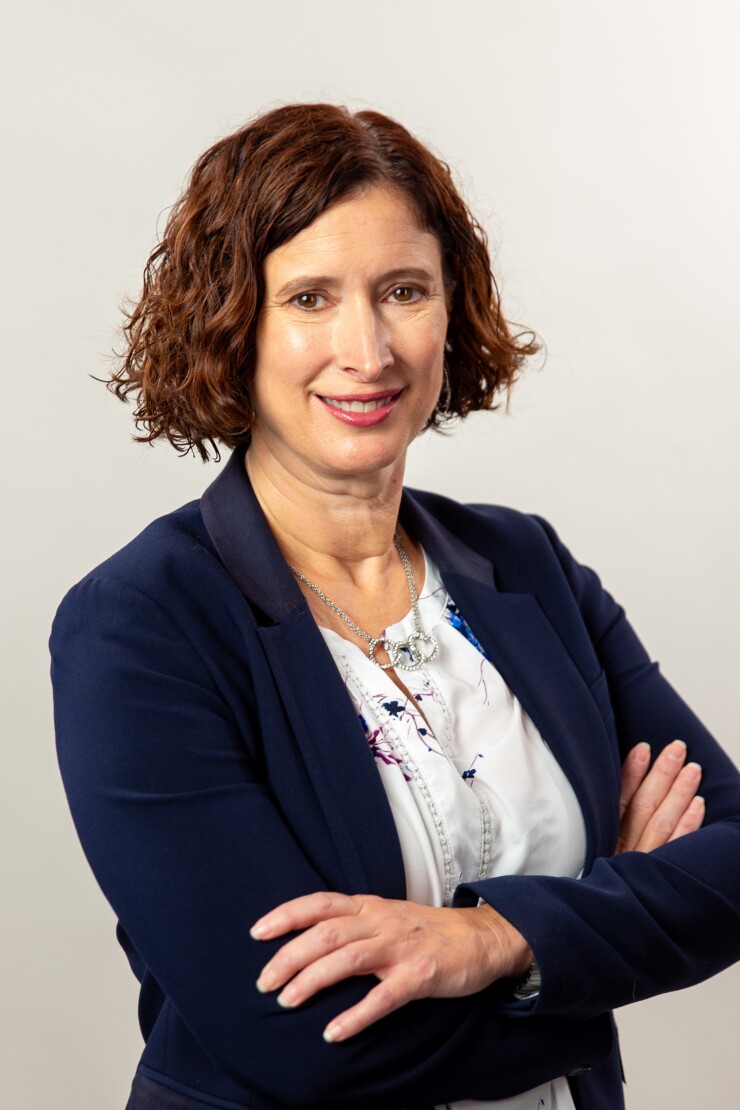
Kathy Kranz, vice president and chief financial officer of Pinnacol Assurance, a state-chartered workers' compensation carrier in Denver, recently closed on the company's first acquisition and now is on the lookout to potentially acquire new technologies, she says.
The 2023 Women in Insurance Leadership honoree says that acquiring Attune, a managing general agent (
"We were finding it hard to seamlessly integrate other, out-of-state workers' comp," Kranz says. "We really started to get creative in how we address that problem."
Pinnacol is allowed to provide services outside of Colorado — underwriting, claims, finance, safety services or return-to-work services, for example — but it can't take on risk outside of the state. It also cannot acquire another insurance company that would add risk to Pinnacol's balance sheet. "We started to focus on: How can we serve our policyholders outside Colorado, but not necessarily be the ones taking the risk?" she says.
The answer was adding an MGA strategy through the Attune deal. Attune already had an MGA strategy and several workers' comp products, which Pinnacol could potentially improve. Now, Pinnacol is looking for other opportunities to provide more workers' comp services outside of Colorado and to find partners to help take on risk, Kranz says.
"We've done a great job in developing that expertise with what we do in Colorado," adds Kranz. Pinnacol's policyholders and stakeholders don't receive the same level of service outside of the state, so the company is trying to find ways to provide out-of-state services to those policyholders who otherwise could be lost to an out-of-state insurer.
Pinnacol is still in acquisition mode. "We're looking for: Where are there holes that we can plug with acquisitions?" Kranz explains. One potential area is out-of-state services for middle-market businesses, which Pinnacol does a lot of business with in-state. Attune works with retail agents who primarily work with small businesses.
Pinnacol also could add technologies through acquisitions. The main reason for acquiring Attune was to take on its "really impressive" technology and distribution platform that its team had built for MGA products, Kranz says. "We really loved all the things they brought to the table there."
Kranz led another technology initiative for Pinnacol: She was a founder of Cake Insure, a technology subsidiary of Pinnacol that launched in 2019 to provide a mobile-devices platform for small business owners to provide workers' comp insurance to their employees. Cake was Pinnacol's first foray into providing only services — not insurance — to a customer base, which was a learning experience, Kranz says.
From a technology perspective, Pinnacol learned the value of executing a small launch, tweaking and building the company after launch, and not worrying that it had to be perfect on Day 1, Kranz shares.
"It was really our first chance to experiment with: OK, let's pick a niche market and find a better way to serve that market with different services," she says. "We may not have picked exactly the right niche to get a lot of business, but we learned a lot about how that can work."
Attune operates the same way: Launching a new service with a small group of
Pinnacol similarly learned about operating a services business from its Cake and Attune experiences, Kranz says. Lesson one in the services business: Building long-term relationships with partners is critical.
"When you're at Pinnacol and you've got a lot of surplus and you've got a huge premium base, you can operate without a lot of partners, at least partners that are really hugely key to what you're doing. We have a lot of control in most of the products we provide," Kranz adds.
But service businesses have "huge dependencies" on their third-party partners, particularly those that will take on risk, Kranz says. "Those partners become absolutely crucial to the success of what you're doing."





